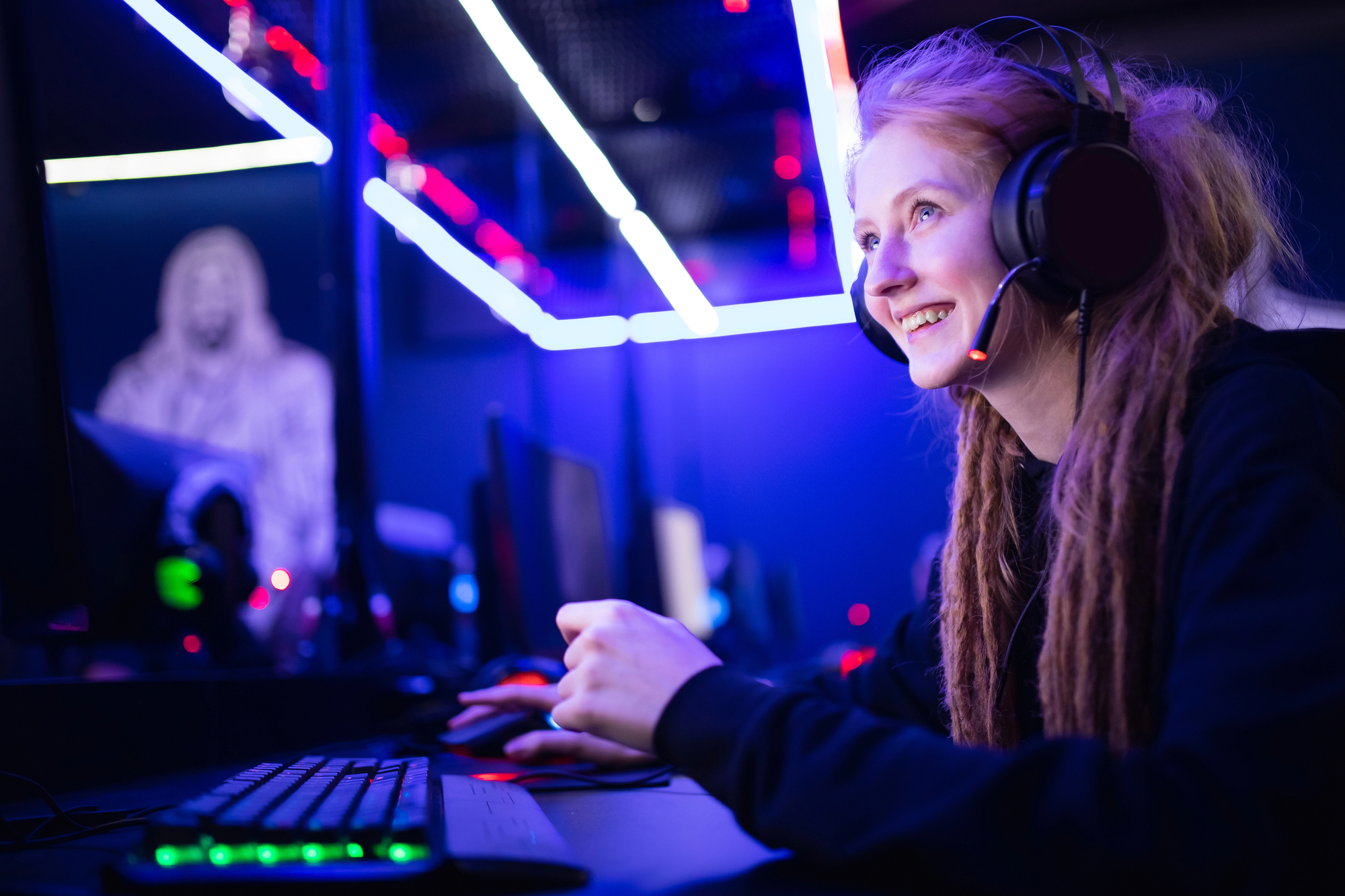Online gaming has become a massive part of modern entertainment, connecting millions of players worldwide.
Creating a positive online gaming environment is crucial for fostering enjoyable experiences and building strong communities.
Game developers and players alike play important roles in shaping the culture of online gaming spaces.
Promoting respectful behavior, implementing effective moderation systems, and encouraging positive interactions can significantly improve the gaming experience for everyone involved.
By focusing on inclusivity and fair play, the gaming industry can create virtual spaces where players feel safe, valued, and motivated to engage with others in meaningful ways.
Positive play initiatives have shown promising results in reducing toxicity and enhancing player satisfaction. These efforts often include features like reward systems for good sportsmanship, clear community guidelines, and accessible reporting tools for misconduct.
As online gaming continues to grow, prioritizing a welcoming atmosphere will be key to its long-term success and appeal.
Establishing Community Standards and Policies
Gaming communities thrive on clear guidelines and effective systems for maintaining a positive environment.
Well-defined policies, inclusive codes of conduct, and responsive moderation teams form the foundation for fostering respectful interactions among players.
Crafting Inclusive Codes of Conduct
A code of conduct sets expectations for behavior within an online gaming community. It should clearly outline acceptable and unacceptable actions.
Key elements include:
- Respect for all players regardless of background
- Zero tolerance for harassment or discrimination
- Guidelines for appropriate language and communication
- Consequences for violating community standards
Codes should be written in plain language and easily accessible to all members. Regular updates keep the code relevant as community needs evolve.
Designing Effective Reporting Systems
A user-friendly reporting system empowers players to flag inappropriate behavior.
Essential features include:
- Simple, in-game reporting options
- Clear categories for different types of misconduct
- Options to provide evidence (e.g., screenshots, chat logs)
- Follow-up communication on report status
The system should protect reporter privacy and prevent abuse. Regular analysis of report data helps identify trends and refine policies.
Developing A Responsive Moderation Team
A skilled moderation team enforces community standards consistently and fairly.
Key aspects of building an effective team include:
- Recruiting diverse moderators who understand different player perspectives
- Providing thorough training on policies and de-escalation techniques
- Establishing clear escalation procedures for complex issues
- Implementing tools to streamline moderation tasks
Regular team meetings and policy reviews keep moderators aligned and responsive to community needs. Feedback mechanisms allow players to rate their experiences with moderation, driving continuous improvement.
Cultivating Respect and Fair Play
Respect and fair play form the bedrock of a positive online gaming environment. These principles foster a welcoming community where players can enjoy their experiences and grow together.
Promoting Sportsmanship and Teamwork
Sportsmanship and teamwork are key elements in creating a respectful gaming atmosphere.
Players should congratulate opponents on well-executed plays and avoid gloating after victories. Good sports accept defeats gracefully and use them as learning opportunities.
Teamwork enhances the gaming experience for all participants. Players can support their teammates by sharing resources, coordinating strategies, and offering constructive feedback.
Encouraging less experienced team members helps build a stronger, more cohesive unit.
Game developers can reinforce these values by implementing reward systems for positive behavior. This might include bonus points or special cosmetic items for players who consistently demonstrate good sportsmanship and teamwork.
Addressing Harassment and Discrimination
Harassment and discrimination have no place in online gaming communities.
Players should report abusive behavior promptly through in-game reporting systems. Game moderators must take swift action against offenders, applying appropriate penalties such as temporary bans or account suspensions.
Companies can implement AI-powered moderation tools to detect and filter out toxic language in real-time. These systems can flag problematic content for human review, allowing for faster response times to potential issues.
Education plays a vital role in combating harassment. Gaming platforms should provide clear guidelines on acceptable behavior and offer resources to help players recognize and address various forms of discrimination, including gender-specific biases.
Fostering Positive Communication
Effective communication is essential for a healthy gaming environment.
Players should use clear, respectful language when interacting with others. This includes avoiding profanity, personal attacks, and inflammatory remarks.
Voice chat etiquette is particularly important. Gamers should be mindful of background noise, speak clearly, and avoid dominating conversations.
Using push-to-talk features can help reduce unwanted noise and interruptions.
Game developers can promote positive communication by incorporating pre-set phrases or emotes that allow players to convey information quickly and politely. This feature is especially helpful for those who may feel uncomfortable using voice chat or have language barriers.
Empowering Players and Content Creators
Players and content creators play a vital role in shaping online gaming environments. By providing tools, resources, and platforms for expression, the gaming industry can foster positive change from within the community.
Encouraging Community Engagement
Game developers and platform owners can implement features that promote positive interactions.
In-game reporting systems allow players to flag inappropriate behavior quickly. Many games now include commendation systems, letting players recognize others for sportsmanship or helpfulness.
Community forums and social media channels give players spaces to share experiences and connect. Moderation teams keep these spaces welcoming by enforcing clear guidelines. Some games incorporate player councils, where respected community members advise on policies and features.
Regular surveys and feedback sessions help developers understand player concerns. This data guides improvements to community tools and systems. Transparency about how player input shapes decisions builds trust between developers and communities.
Supporting Educational Online Gaming Events
Gaming events focused on learning and skill development create positive experiences for players.
Tournaments can include educational components, such as workshops on teamwork or conflict resolution. Some events partner with schools or non-profits to teach digital literacy and online safety.
Game jams challenge creators to build games around positive themes like inclusivity or mental health awareness. These events spark conversations and produce games that tackle important social issues.
Charity streams bring communities together for good causes. Players and content creators raise funds while showcasing games in a positive light. These events highlight gaming’s potential for social impact.
Collaborating with Influencers for Positive Impact
Popular YouTube creators and Twitch streamers shape community norms through their content and behavior.
Game companies can partner with influencers who model positive gameplay and interactions. These collaborations might include sponsored streams showcasing inclusive features or community-building initiatives.
Influencer-led campaigns against toxicity reach wide audiences. When respected figures speak out against harassment, it encourages others to follow suit. Some content creators form alliances to promote healthier gaming cultures across multiple platforms and game communities.
Developers can give influencers early access to community management tools, gathering feedback to refine these systems. This approach ensures new features meet the needs of those managing large online communities.
Building Safer Virtual Worlds
Online gaming environments prioritize safety and positive interactions. Developers and players work together to create spaces that foster healthy connections and protect users from potential harm.
Implementing Tools for Online Safety
Game developers integrate reporting systems, content filters, and moderation tools to address inappropriate behavior.
Many platforms use AI-powered detection to flag offensive language or suspicious activities. Players can mute, block, or report problematic users. Some games implement reputation systems that reward positive conduct and penalize toxic behavior.
Privacy settings allow users to control their visibility and limit interactions with strangers. Two-factor authentication and strong password requirements help prevent account theft. Regular security updates patch vulnerabilities and strengthen defenses against cheating or exploitation.
Creating Spaces for Meaningful Discussions
Forums, in-game chat channels, and community hubs provide spaces for players to connect. Moderators oversee these areas to maintain civility and encourage constructive dialogue. Clear guidelines outline acceptable behavior and consequences for violations.
Some games feature mentor programs pairing experienced players with newcomers. This fosters a welcoming atmosphere and helps integrate new community members. Developers often engage directly with players through Q&A sessions, livestreams, and feedback surveys.
Guild systems and social features within games allow like-minded players to form tight-knit groups. These smaller communities often self-moderate and uphold shared values.
Advocating for Mental Health Through Play
Games increasingly incorporate features promoting wellbeing.
Breathing exercises, meditation mini-games, and relaxation zones offer moments of calm.
Some titles include optional content warnings for sensitive themes.
Developers partner with mental health organizations to provide in-game resources and crisis support information.
Community events raise awareness about issues like depression and anxiety.
Games emphasize the importance of breaks, with some implementing optional play-time limits or reminders to take breaks.
Multiplayer experiences can combat isolation, especially valuable during periods of social distancing.
Cooperative gameplay encourages teamwork and social bonds.
Virtual worlds offer safe spaces for self-expression and identity exploration.












